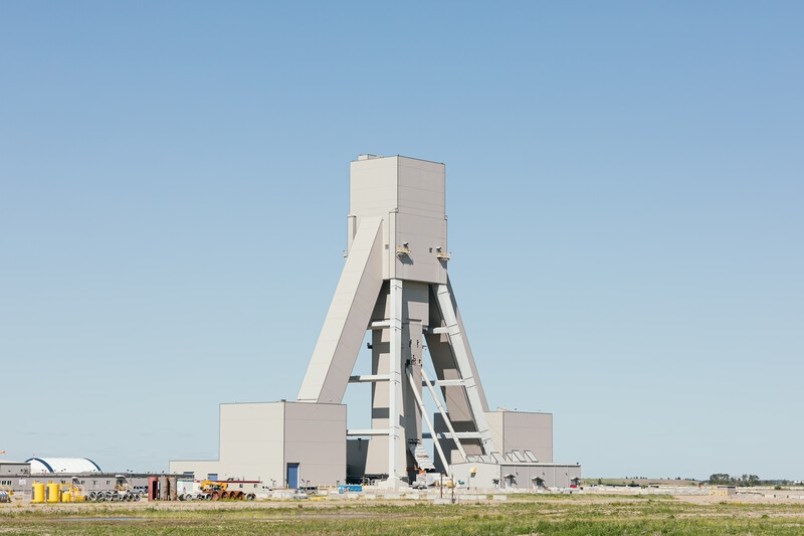JANSEN — BHP said it will invest $7.5 billion (US$5.7 billion) for the first stage of the Jansen potash mine.
The mine represents BHP’s first foray into the potash business.
“This is an important milestone for BHP and an investment in a new commodity that we believe will create value for shareholders for generations,” said Mike Henry, BHP’s CEO, in a Aug. 17 media release.
“In addition to its merits as a stand-alone project, Jansen also brings with it a series of high returning growth options in an attractive investment jurisdiction.”
BHP said the first stage is expected to produce approximately 4.35 million tonnes of potash per annum. The mine is expected to operate for 100 years.
Construction of the mine is expected to take around six years, with the first ore targeted to come from the ground in 2027. That will be followed by a ramp up period of two years.
Henry said Jansen will create at least 3,500 jobs during peak construction and 600 in operation. He added the first stage will have a gender balanced workforce, with 20 per cent of the workforce being made up of local First Nations.
Michael Behiel, Humboldt’s mayor, said he’s very happy and excited to hear the announcement.
“I think it's going to be a superbly exceptional move forward,” he said. “I know that both sides will reap many benefits in the years to come. I'm very excited about the potential for this to increase our economic tax base and the resulting increase in size and benefits for the community.”
The mayor added that BHP’s been an outstanding community member, contributing to a number of causes.
Brent Fitzpatrick, the Humboldt and District Chamber of Commerce's executive director, said there’s no business in the region that won’t be affected by the new mine.
“It's something that the entire region has waited for for a long time. I have absolutely no doubt there are a lot of very happy businesses in the region,” he said. “I'd like to thank BHP for having the faith in this region and in the marketplace to move forward on this project.”
The first stage includes the design, engineering and construction of an underground potash mine and surface infrastructure including a processing facility, a product storage building, and a continuous automated rail loading system.
BHP said the product will be shipped for export at Westshore in Delta, B.C. and the project includes funding for the required port infrastructure.
“In developing the Jansen project, BHP has had ongoing positive engagement and collaboration with First Nations and local communities, and with the provincial and federal governments,” Henry said. “Jansen is designed with a focus on sustainability, including being designed for low GHG emissions and low water consumption.”
BHP said it expects that growing demand in potash will absorb the current excess supply of the product by the late 2020s or early 2030s, around the time Jansen will be going online.
At average prices of US$341/tonne CRU and US$292/tonne Argus between 2027 and 2037, BHP expects to generate an internal rate of return of 12 to 14 per cent, an expected payback period of seven years from first production and an underlying EBITDA (Earnings Before Interest, Taxes, Depreciation, and Amortization) margin of approximately 70 per cent given its expected first quartile cost position.
So far, BHP has invested US$4.5 billion at the site. The investment to date includes construction of the shafts and associated infrastructure (US$2.97 billion), as well as engineering and procurement activities, and preparation works related to Jansen first stage underground infrastructure.
The mining company said construction of two shafts and associated infrastructure at the site is 93 per cent complete and expected to be completed in 2022.
In its release, BHP acknowledged the US$4.5 billion was a significant initial outlay and that its approach would be different if considering the project again today.






